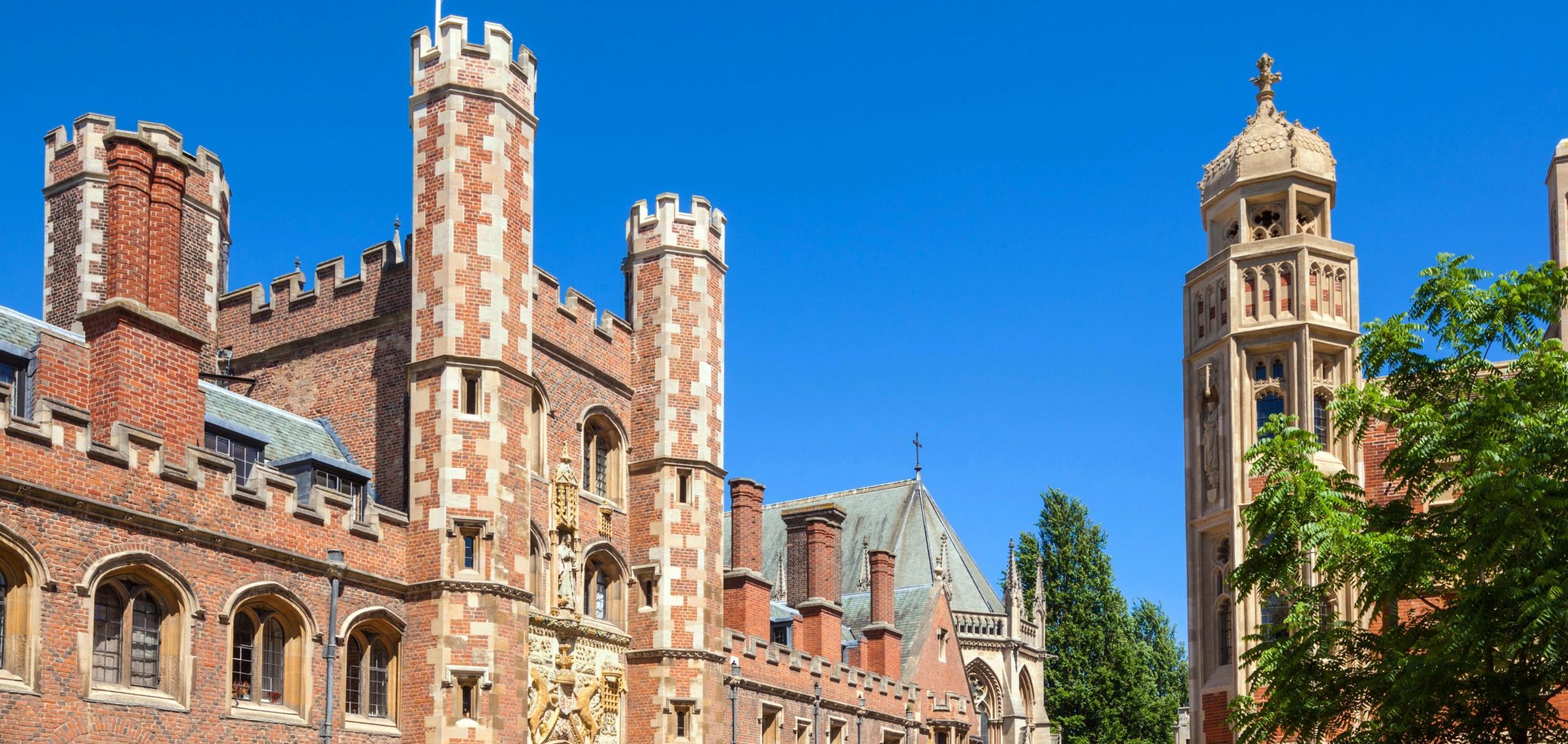Cambridge: A history
Though younger than its rival, Oxford, the university city of Cambridge has played a pivotal role in British history
Straddling the River Cam, which gives the city its name, Cambridge is as resplendent and fine an English city as one could find.
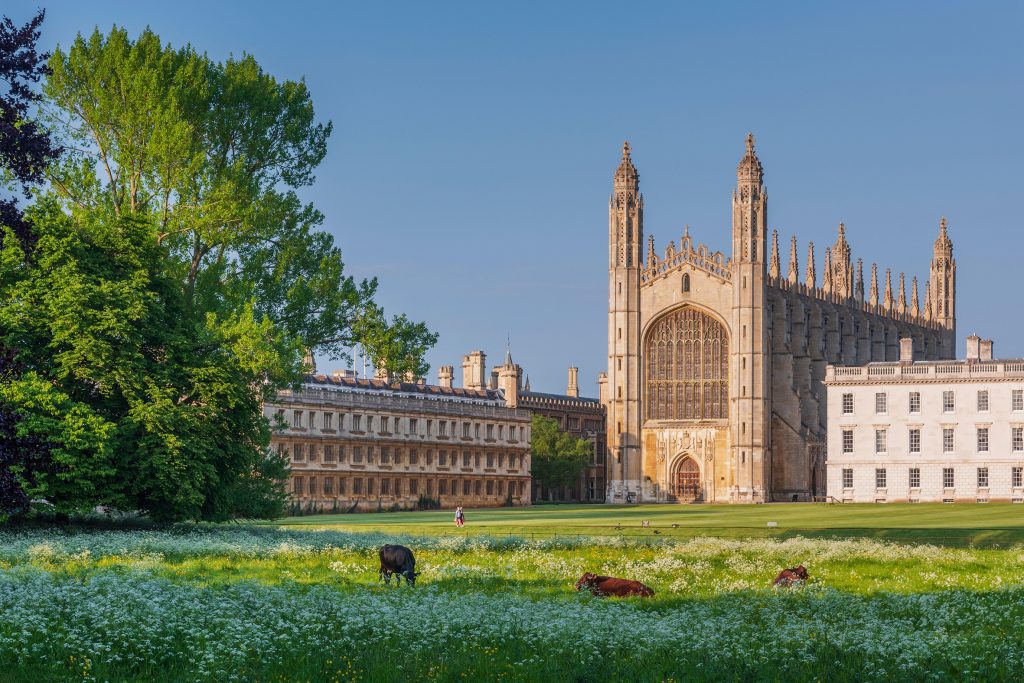
Easily rivalling its boat race opponent of Oxford for splendour and history, Cambridge is the suffix in the ‘Oxbridge’ amalgamation which refers to Britain’s oldest and most prestigious two universities that have spawned many a prime minister, novelist, renowned scientist and – in Cambridge’s case at least – comedian. For Cambridge’s Footlights is perhaps the poshest yet most consistently good comedy troupe in all these isles – introducing to the world Emma Thompson, Stephen Fry, Hugh Laurie, and even Oscar-winner Olivia Colman.
Much like its adversary, the university and its many colleges dominate Cambridge’s skyline. Oxford is the older of the two universities, founded in 1096, with Cambridge’s story beginning in 1209 when a group of scholars arrived following trouble with Oxford townsfolk, though it would be another 75 years before its first college, Peterhouse, was founded by the Bishop of Ely.
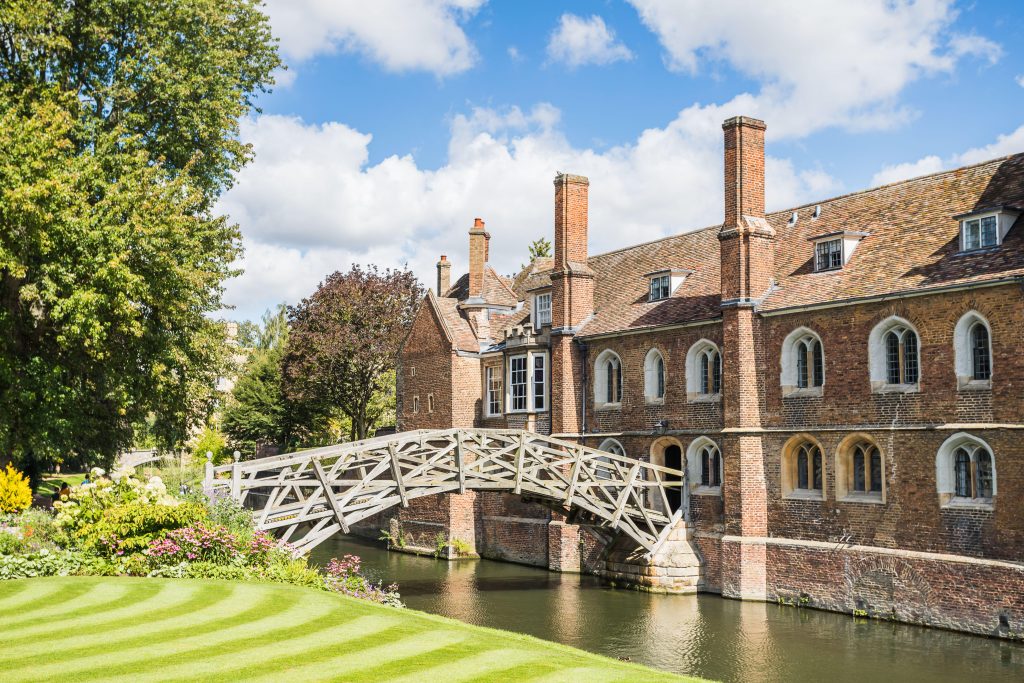
Other colleges were gradually introduced, by a succession of powerful figures, from the Countess of Pembroke (Pembroke College) to Henry VI (King’s College) and Henry VIII (Trinity College).
King’s College’s Chapel is one of the city’s most adored buildings yet, it very nearly didn’t happen as building was interrupted following the imprisonment of King Henry VI during the Wars of the Roses. But work recommenced during the reign of Richard III and was completed by Henry VII and Henry VIII, making it a true ‘work of kings’.
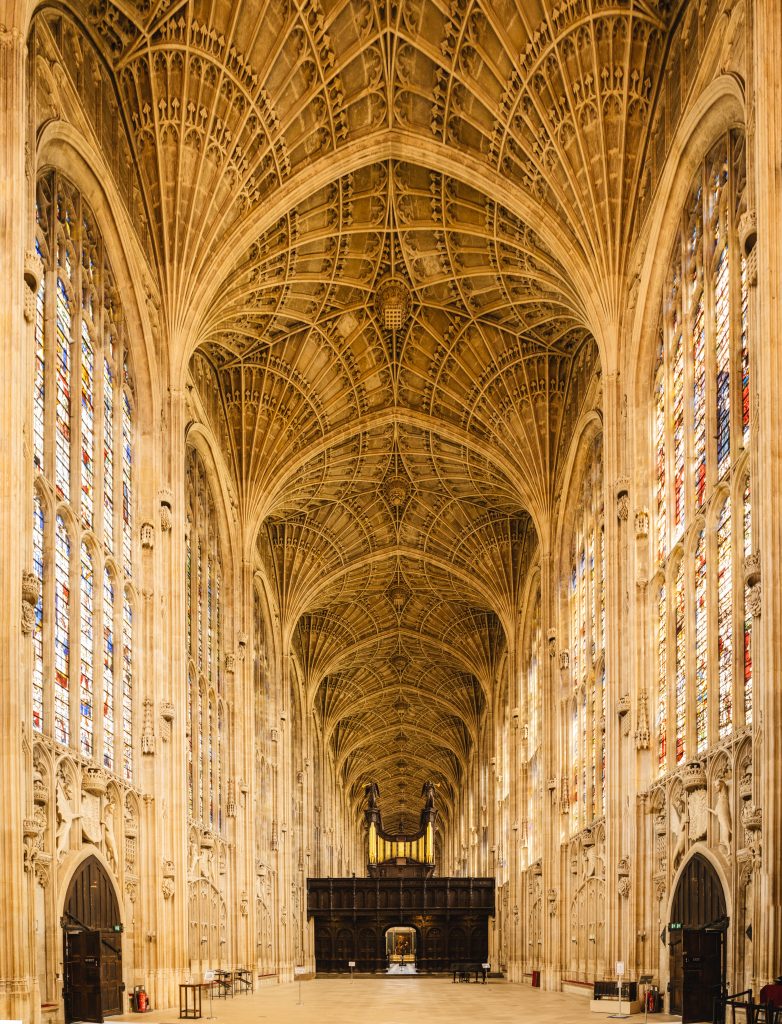
Today, visitors are wowed by the largest fan-vaulted ceiling in the world, the 26 Renaissance stained-glass windows and the Rubens’ painting, The Adoration of the Magi.
But of all the Cambridge colleges, Trinity, founded by Henry VIII in 1546 is the biggest and wealthiest and is where His Majesty King Charles III himself lived and studied.
Though today the college is ostentatious and grand, Henry wasted little royal funds on it, instead combining the colleges of King’s Hall and Michaelhouse to create the new college he was pressured by his final wife Catherine Parr into making.
Parr had acted amid fears that her husband planned to tear down the colleges in the overtly catholic city as part of his vision of reforming England into a protestant country. The founding of Trinity was one of his last big acts as king and he hoped it would go on to produce future Protestant leaders.
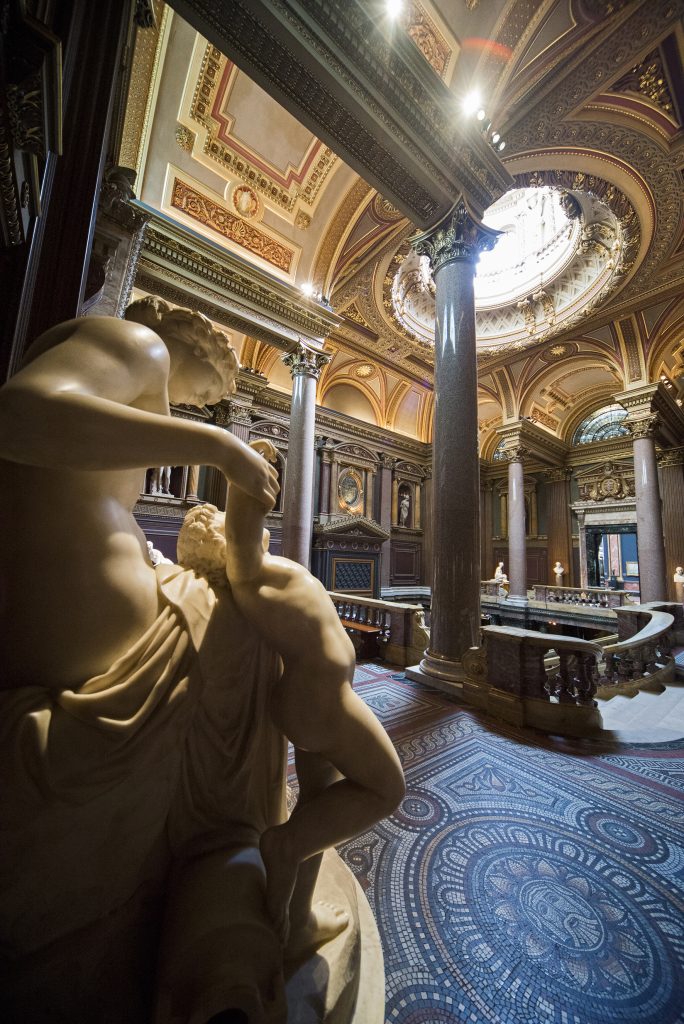
The Founder’s entrance to the Fitzwilliam museum.
By far, the best way to get an overview of the colleges and the city’s setting along the River Cam is by punt and a genteel river tour along the picturesque ‘Backs’, and Scudamore’s is the most renowned of the companies offering such trips.
On your punting tour your guide (usually a student), will regale you with anecdotes from the history of the city – mostly related to the university and past students – whose illustrious alumni include Sir Isaac Newton, William Wordsworth and Lord Byron.
You’ll pass under the Bridge of Sighs, named after the romantic Venice bridge, (though quite different from its namesake), and the Mathematical Bridge, so called due to its complex engineering, which looks like an arch but is made up of straight timbers. Spending an hour on the river on a sunny day it’s easy to see the synergy between the university and the water.
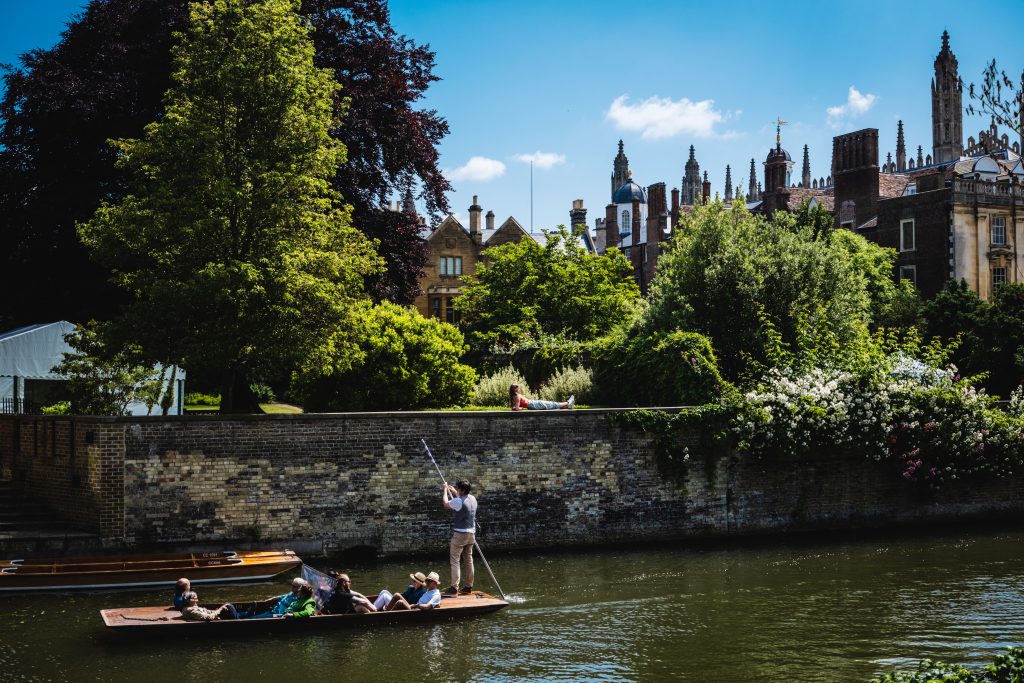
On wet and dreary days you can retreat to some of the city’s snug pubs, such as the Pint Shop, a quirky little pub in the 19th-century former home of novelist EM Forster or the ‘lived-in’ style of The Punter, and then of course there is The Eagle – where Francis Crick and James Watson announced they had discovered the ‘Secret of Life’: DNA.
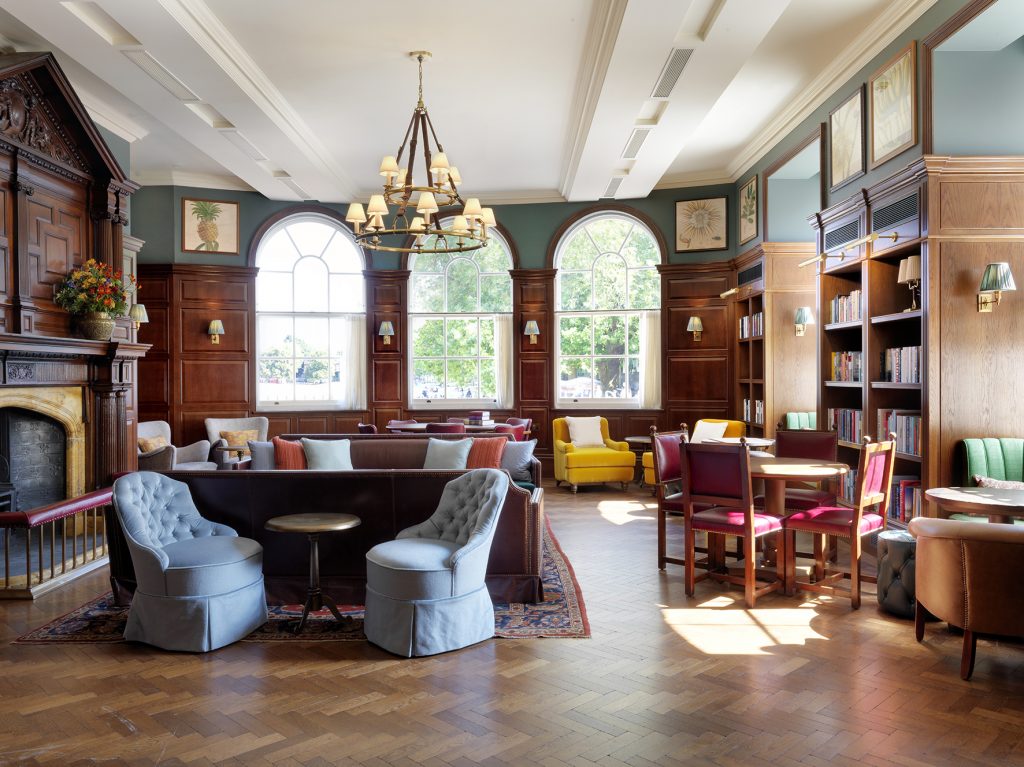
The library at the University Arms hotel.
The annual Oxford and Cambridge Boat Race that takes place each May along the River Thames is a fiercely fought battle, where winning is a badge of honour, and with Cambridge victorious on four of the past five occasions, you can expect to hear a little bragging.
Of course, there are some excellent museums to browse where you can see some of the university’s collections, as well as well-stocked bookshops such as Heffers, Fitzbillies or the quirky Haunted Book Shop on St Edward’s Passage.
If you time it right you can even visit during the annual literary festival each November (in 2023 from 16-19 November).
At the end of a busy day sightseeing, retreat to a comfortable room at the University Arms, a historic hotel, centrally located, and with views over Parker’s Piece – a big green where a huge coronation feast for Queen Victoria was held in 1838 (look out for the illustration of the event in the lobby).
Just remember to explore the wonderfully historic city while you’re here, too.
This is an extract, read the full feature in our October/November 2023 issue of Discover Britain, available to buy here from Friday 8 September.
Read more:

